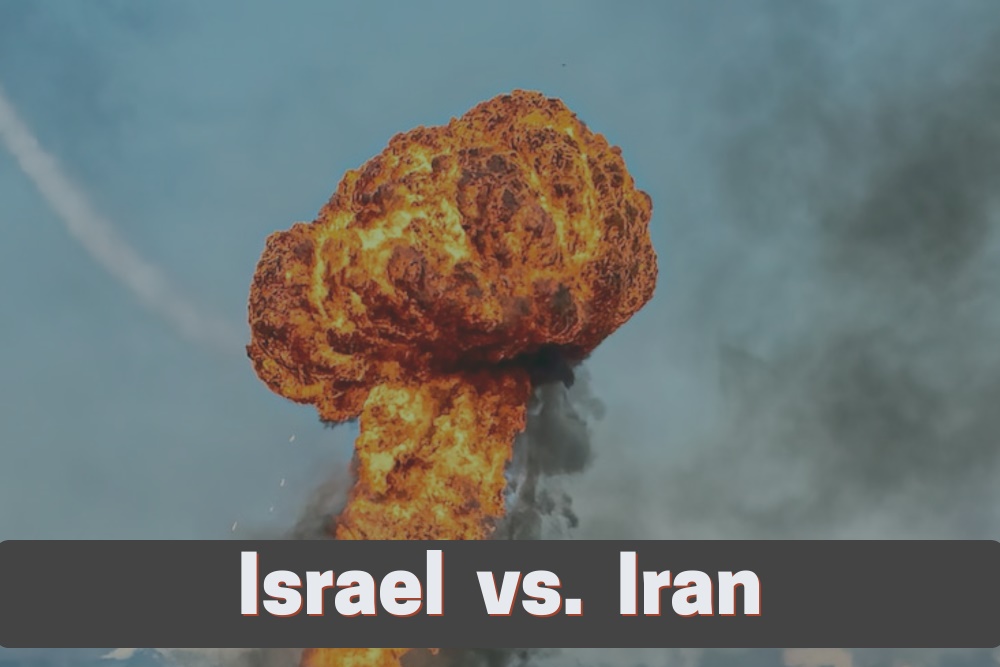
In recent months, Israeli defense officials have been vocal about plans to knock out Iran’s nuclear program. By now, the Israeli Air Force is at a heightened state of readiness to launch a large-scale assault.
Israel has finalized plans to attack Iran and is working to improve them with new weapons and munitions, Ynet reports. The IDF designed three different strike operations against Iran and its regional allies, the report says.
Veteran journalist Ron Ben-Yishai reports that the plans are not limited to bombing Iran’s nuclear sites. He writes that the blueprints also outline an all-out assault on the Iranian regime and its military arm, the Revolutionary Guards. The IDF could also target vital infrastructure sites that enable Iran to threaten Israel.
The Air Force is ready to attack Iran now if the government orders a strike, the Ynet report says.
Notably, Israel held two large drills in recent months to practice a full-scale strike in Iran. The US military actively participated in one of the exercises as Israel and the United States elevate their military cooperation.
Separately, the Israeli Air Force is engaged in intensive training to prepare for attacking Iran’s nuclear facilities. This includes practicing long-range flights and simulating strike operations with precision-guided munitions.
In parallel, the Air Force bolstered its order of battle with new F-35 fighter jets and hundreds of UAVs. The IDF is also upgrading existing aircraft and recruiting more pilots and other personnel needed for a broad assault.
Attack in 3 phases
Israel’s military planners are relying on detailed intelligence acquired from many sources to plan flight routes and strike methods for each target. The Air Force will employ multiple types of high-precision munitions, including cruise and anti-radar missiles as well as laser and GPS guided bombs.
The Iran mission will likely be executed in three phases. The first will involve airstrikes supported by electronic and cyber warfare to disable and destroy Iran’s air defenses. This will be followed by a heavy aerial bombardment of up to 15 critical nuclear and military sites.
In the third phase, Israel will aim to launch another wave of strikes possibly supported by the Navy and elite forces on the ground. Based on damage assessments, this stage will include operations to eliminate the remaining parts of Iran’s nuclear program.
Israel is fully capable of destroying Tehran’s nuclear project, a military analyst has argued previously. An Israeli strike would wipe out Iranian nuclear and missile sites plus other vital military assets, analyst Kenneth S. Brower said.
The IDF will overpower Iran’s air defenses and weak air force, Brower wrote in a detailed study. Israel can stage an extended assault with hundreds of airstrikes a day and paralyze Iran’s strategic infrastructure if the war expands, Brower estimated.
Last year, a high-ranking IDF officer said that Israel has the military and intelligence capabilities to attack and demolish Iran’s nuclear facilities. Since then, the army built an even greater strike force and upgraded the attack plans.
This week, military chief Aviv Kochavi revealed at the INSS think tank that the IDF acquired dedicated munitions for bombing Iran’s nuclear sites. The army significantly improved its readiness to strike in the past year and will be ready to attack when the order comes, he said.
Mossad’s mission
At this time, Israel’s plan for attacking Iran appears to be firmly in place with all preparations completed or well underway. However, Israel’s political and defense leadership hopes to delay the strike to further improve attack plans and the country’s readiness for war.
The IDF will upgrade its battle plans in the coming years with advanced military gear, the Ynet report says. This includes powerful armaments as well as a laser-based air defense system. Israel will also need to adjust its economy for huge wartime expanses.
Meanwhile, Mossad will likely resort to covert action to disrupt and slow down Iran’s program and buy more time for other options. In parallel, the spy agency will continue to invest large resources to obtain intelligence for a military strike.
Another critical factor for an Israeli attack is American and global support. Current geopolitical conditions are favorable, as Iran is increasingly isolated due to its close ties to Russia. A friendly president at the White House in 2025 could offer another major boost.
But Israel may not have the time to wait. As Iran advances its nuclear program and enriches more uranium, the incentive to strike could peak within months. Ultimately, Tehran’s actions will determine if Israel moves forward with its grand plan to attack Iran in 2023.


